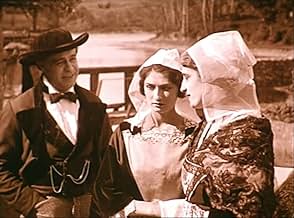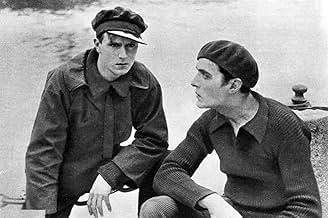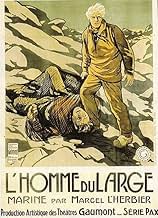This movie is another proof positive that Lherbier was much better when he made silent movies than in the talkies era."L'Homme du Large" compares favorably with Murnau's "Sunrise" which was yet to be released in 1920.
It's the story of four characters:The father (Nolff),the mother(she was not given a name),the brother (Michel)and the sister (Djenna).It takes place in Britanny among the menhirs (Carnac?) and in front of the sea.
Nolff presents the sea with his son: "here's your "promise" (old French word for "fiancée") he tells the baby .Nolff is very proud to have a boy and tells his wife "Now I will take care of him,you'll keep your daughter." Unfortunately,as years pass by,the girl becomes a virtuous good woman whereas the spoiled child turns into a good-for-nothing,always hanging around in the town -which epitomizes evil- .Nolff wanted his son to become a fisherman ,but all the boy wants is to have fun with his bad pals in the low dive.Always short of the readies,his father is a cash cow to him.
A movie of redemption,where religion and mysticism come to the fore.Brittany is one of the French regions where religious fervor is the most intense.Faith in Virgin Mary for the women.On the other hand,and although he goes to church for Easter,the father's religion has pagan accents with old testament accents.His "judgement of the sea' has got something of Abraham.But the Nile was Mosis's salvation,and it's possible that the father hopes against hope that something will happen.
Admirable scenes: -The boy in the low dive while his father is sailing and his mother is dying.Editing is stunning.
-The cross which appears on the sea.
-The shadows of the brother and the sister who meet again on the beach .
-The father tearing off his daughter's nun's clothes when his prodigal son has come home.
But it's the whole movie which is captivating.It has the strength of Victor Hugo's epic poem "Les Pauvres Gens" .
























